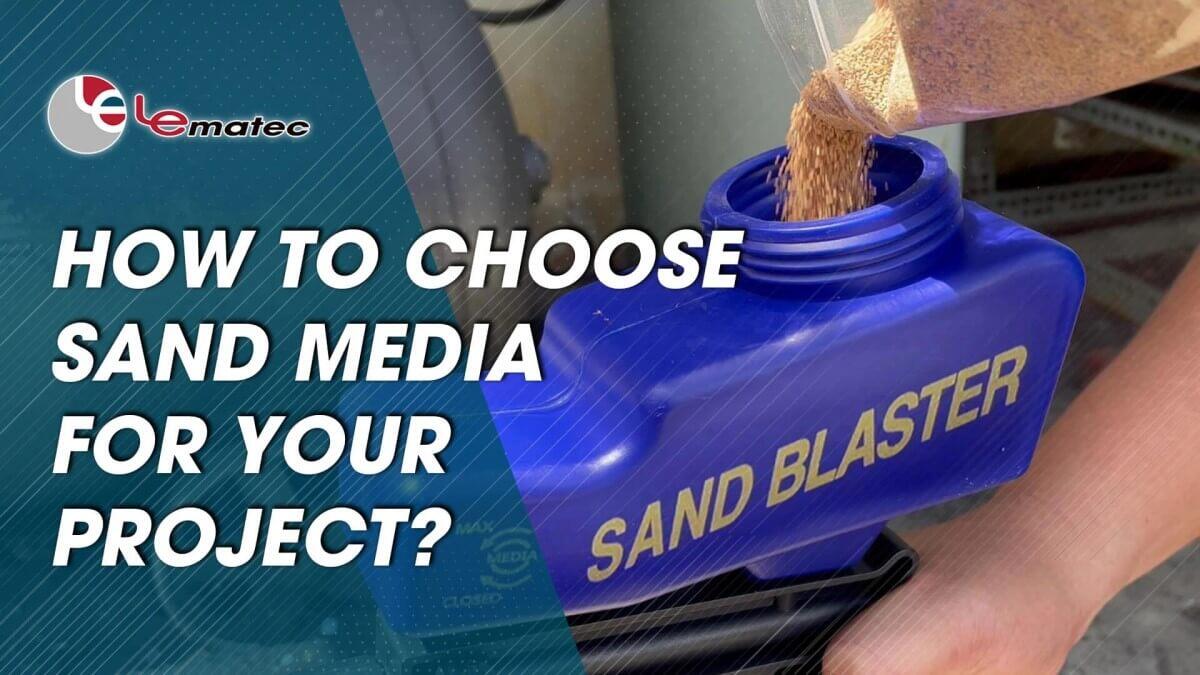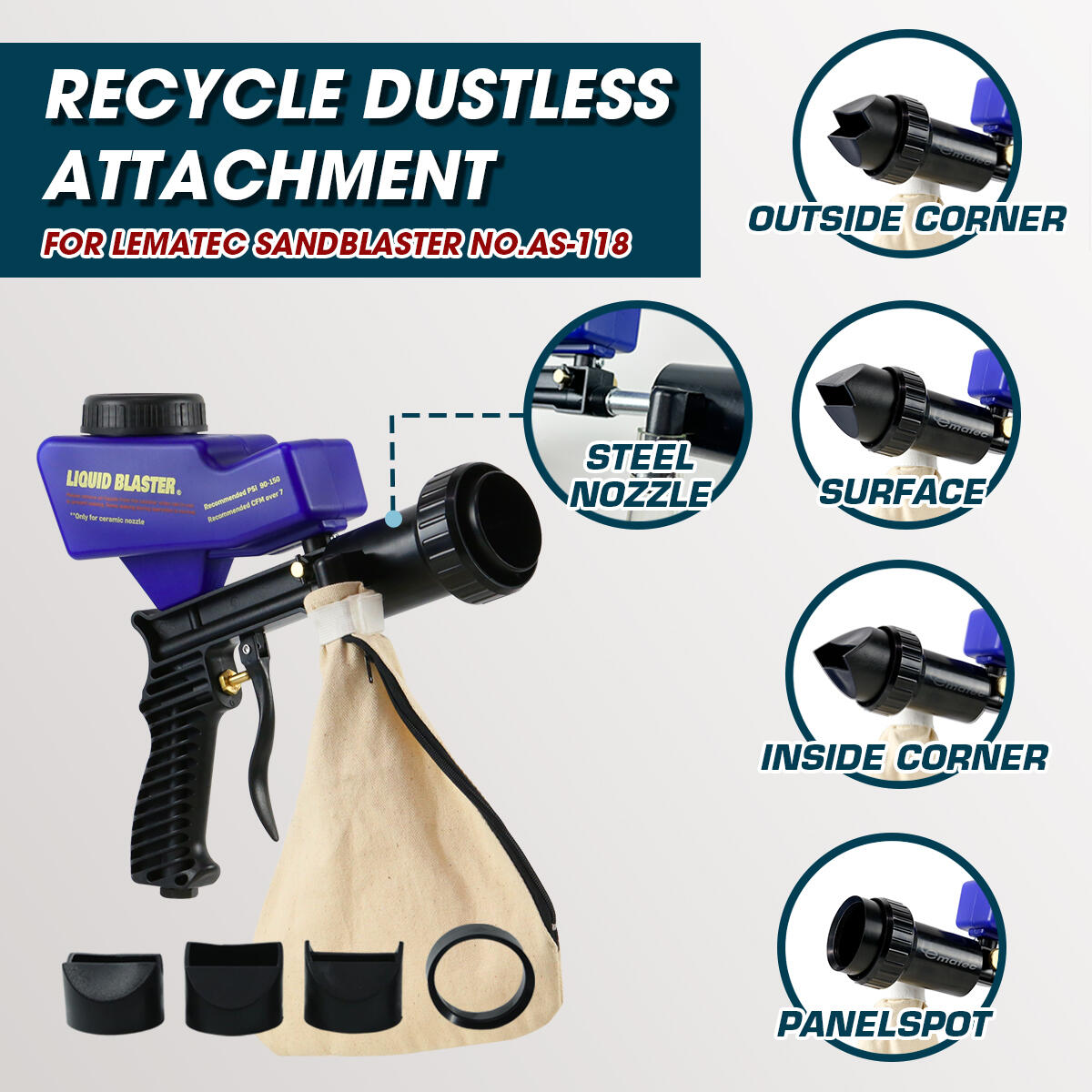How to choose the correct media to sandblast?
How do you choose the right sandblasting media? What is the best medium for sandblasting?
Sandblasting media is the abrasive used in sandblasting.
There are several different types of sandblasting media, each with unique properties and applications. The choice of blasting media for other jobs is determined by the type and results of the surface being treated.
Sandblasting media
Blasting media/abrasives are suitable for use in each material. The sandblasting media you choose can affect the results of your sandblasting project.
| Media | Description | Used for | Hardness | Shape |
Soda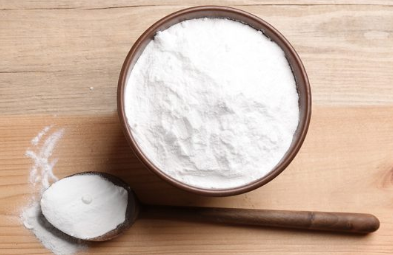 | Soda abrasive is made from baking soda or bicarbonate of soda. It offers non-destructive cleaning and is very popular among operators. | It removes rust from metals without causing depression or damaging the metal beneath the rough surface. | 2.5 | Angular |
Coal Slag / Aluminum Silicate | It is a dispensable abrasive, a by-product of coal-fired electric power generation plants. Compared to Copper Slag, it produces less dust. | It is often used in open blasting operations in the oil- and shipyard industry and other metal surface treatments. | 6-7 | Angular |
Aluminum Oxide Grit(Brown Corundum)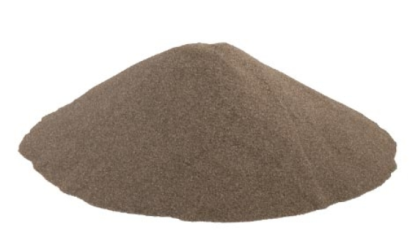 | An extremely sharp, long-lasting blasting abrasive that can be recycled many times, it is available in a 99.5% pure white grade and commonly standard brown. | Aluminum Oxide Grit is often used in surface treatments and preparations. | 8-9 | Angular |
Crushed Glass Grit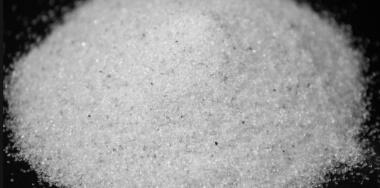 | Crushed Glass Grit is made of 100% recycled glass beads. It is considered to be eco-friendly and health-friendly, as it eliminates the presence of airborne carcinogens. It is also non-toxic and non-hazardous. | This is used in profiling and removal of coatings and surface contamination and can be used around water. | 5-6 | Angular |
Steel Grit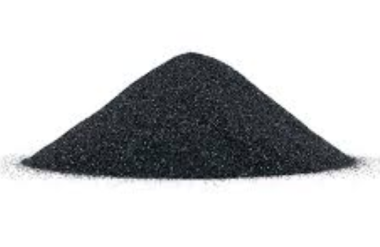 | It is softer than Aluminum Oxide Grit but still has a high hardness quality. It has very fast stripping action and shot-peening applications. | It is commonly used in cleaning, etching, and surface preparations. | 40-65 HRC | Angular |
Staurolite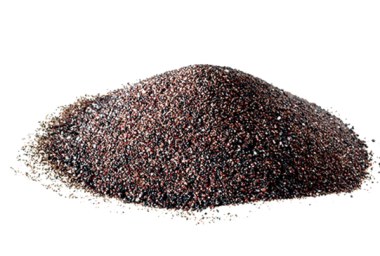 | It is a Silicate of Silica and Iron and is generally used to remove thin coatings, rust, and mill scale. Its sub-angular shape is ideal for applications requiring a minimal surface profile. | Ideally used in stripping off surfaces in storage tank & tower construction, structural & plate steel blasting, and steel fabrication. | 7.0 Mohs | Sub-angular |
Application: Polish
| Media | Description | Used for | Hardness | Shape |
Glass Beads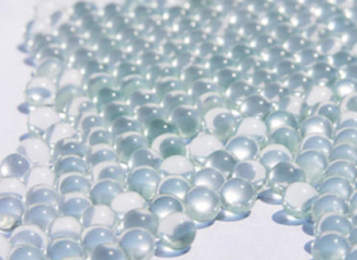 | Glass Beads are manufactured into preformed ball shapes, which effectively leave very smooth surfaces. Compared to angular abrasives, they produce a super smooth and brighter finish, and glass beads can be recycled up to 30 times. | Commonly used for automotive restoration, stainless steel fabrication, polishing of castings, and light deburring of metal molds and parts. | 6-6 | Round |
Steel Shot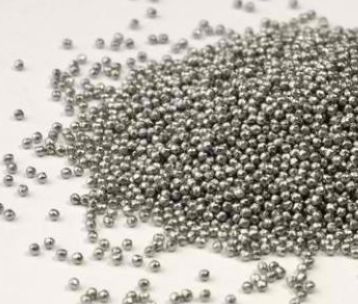 | Steel Shot is manufactured into a spherical pellet-type abrasive made from carbon steel. It often produces a very smooth surface after use. | Steel shot abrasives are often used to clean and polish metal surfaces and parts in automotive, aerospace, construction, foundry, shipbuilding, rail, and other industries. | 40-51 HRC | Spherical |
Steel Grit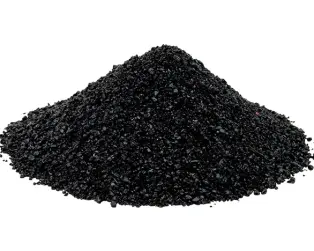 | It is softer than Aluminum Oxide Grit but still has a high hardness quality. It has swift stripping action and shot-peening applications. | It is commonly used in cleaning, etching, and surface preparations. | 40-65 HRC | Angular |
Corn Cob Grit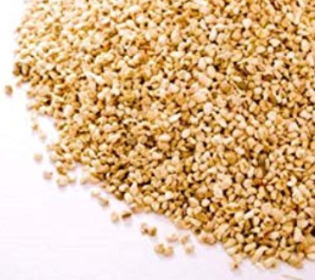 | Corn Cob Grit is an organic, soft, and natural abrasive made from hard cobs. It is tumbling and absorbent and dries surfaces. Corn cob grit is non-toxic and safe for operators. | It is best used on wood surfaces and does not create any damage on the treated surface. It is used on oily and moist surfaces that quickly absorb it while finishing rough parts. | 4-4.5 | Ground, Angular shape |
Walnut Shell Grit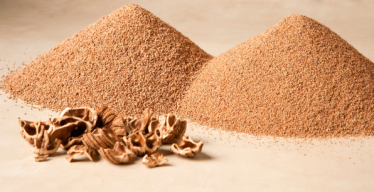 | It is a very versatile soft abrasive, organic, and biodegradable. Like corn cobs, it is non-toxic and poses no health hazard. | Walnut Shell Grit is best used in stripping and cleaning delicate surfaces and parts. It provides effective applications such as cleaning hardwoods, aircraft, and automotive stripping. | 4.5-5 | Angular |
Copper Slag / Iron Silicate | In contrast to its name, it contains almost no copper. It is the best abrasive to use when ranked on cutting speed and cost per sq. ft. | It comes in an extra fine-grade abrasive used for surface blast-cleaning carpets, plastic, and wood. | 7 | Angular |
Garnet | Garnet is a natural silicate mineral deposit. It has a high stripping rate, very low dust, and the lowest consumption rate. | It is mainly used for wet or dry sandblasting and offers excellent coating preparation and adhesion properties. | 6.5 - 7.5 | Angular to Subangular |
Common applications:
Sandblasting guns can remove rust, paint, dirt, and more.
Applications of Sandblasting Media
- Removing Rust and Dirt
Sandblasting media effectively removes rust, paint, and dirt from various surfaces, improving durability and appearance. - Surface Preparation
Different media types prepare surfaces for further treatments like painting and coating. Choose media based on the surface and desired finish. - Choosing the Right Media for Your Needs
When selecting your sandblasting media, consider surface type, desired finish, and environmental impact.
What You Should Prepare Before Sandblasting?
Sandblasting FAQ.
Get your media NOW
- Aluminum Oxide Grit(Brown Corundum)
Frequently Asked Questions (FAQ)
Answers to frequently asked questions about abrasive blasting media and their best applications:
Cost analysis
In addition to the purchase cost of different sandblasting media, application and durability must also be considered. To make a cost-effective decision, compare the initial cost of sand media with its durability and efficiency. Media such as aluminum oxide may have a higher upfront cost but have long-lasting performance and can be reused multiple times, reducing overall costs. Consider the price per pound, the longevity of the media, and the application's efficiency.
Maintenance tips
Regular maintenance of sandblasting equipment has an impact on efficiency and lifespan. Make sure to clean the nozzles frequently and check for wear, as efficiency will be reduced when the nozzles are clogged or damaged. Regularly check pneumatic hoses and connections for leaks and replace any worn parts. Maintaining correct operating air pressure and ensuring the compressor is in good condition will also aid in the effectiveness of your sandblasting.
Case study
Examining the practical applications of various sandblasting media can provide valuable insights into their effectiveness. For example, soda blasting on delicate surfaces like wood can remove rust without damaging the wood surface. In contrast, steel grit is often used in industrial environments because of its strong cleaning ability on metals. These examples illustrate how choosing the right media can improve the efficiency and results of your blasting.
More Lematec sandblasting guns are as follows:
New arrived - air spot recycling sandblaster gun:
About the Author:

Vic Chen is the General Manager at Lematec and has over 10 years of experience in digital marketing and the pneumatic industry.
